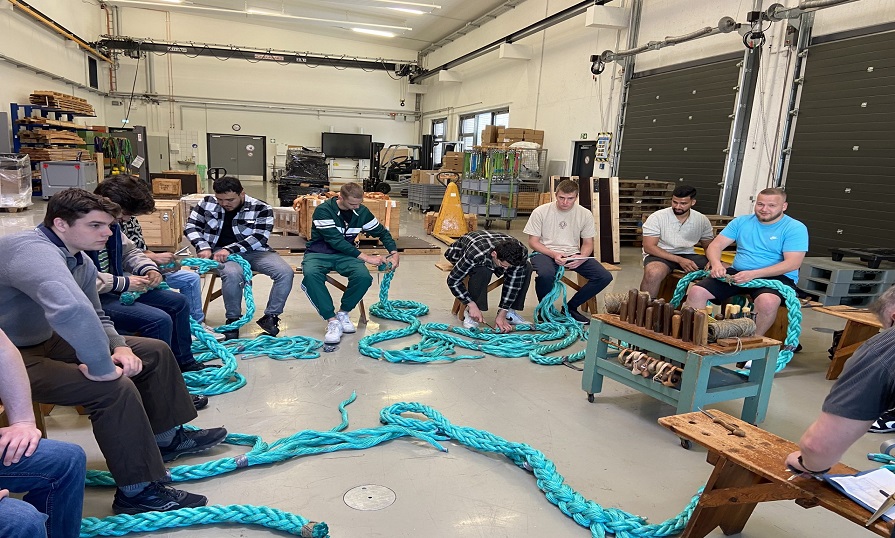Paul Vigneau's Story

Stepping into Hamburg’s bustling port felt like entering a world where the past and future of maritime trade converge. My recent exchange trip to Hamburg, along with four other students, offered a unique glimpse into the enormous world of maritime operations and logistics. From the towering cranes lining the docks to the specialized training taking place at the boatmen school (BS27), my journey was an eye-opening adventure that bridged academic theory with real-world experience. In this blog, I will outline the highlights of this unforgettable voyage and share the insights gained from immersing myself in the dynamic environment of Hamburg.
The exchange program is done in partnership with the boatmen of BS27 school, a vocational post-secondary school for Hamburg boatmen and port logistics training. The school offers 2-3 specialized apprenticeships programs, equipping the students with the necessary knowledge and qualification to work in the port. In the case of the boatmen, the apprenticeship is done both in class and on the water with a boat company, who will hire them upon their graduation. Therefore, our trip included visiting three different passenger boat companies in the port and in the city.
A large part of this trip was also dedicated to visiting port facilities, as Hamburg is the third largest port in Europe by container throughput. Break bulk cargo, oil, coffee, and containers, Hamburg has it all, and in astonishing proportions. The towering container cranes can lift containers up to 50m, and the port can welcome vessels of 400m in length. All throughout the import-export process, from container packing to loading aboard vessels, we witnessed German precision and efficiency at its finest. The scale of operations seen in Hamburg certainly gives us navigators a new perspective on this industry.
On top of maritime-related visits, we had the opportunity to travel to Heligoland for a day, which is a small island off the German coast. We also visited the center of Hamburg bit by bit in the late afternoons, which provided an excellent context for the visits the port. Historically, Hamburg was made wealthy through trade, as demonstrated by the rich past architecture. However, the extensive ww2 British-American bombing campaign of the city means it mostly had to be rebuilt afterwards, making Hamburg a very modern city overall.
